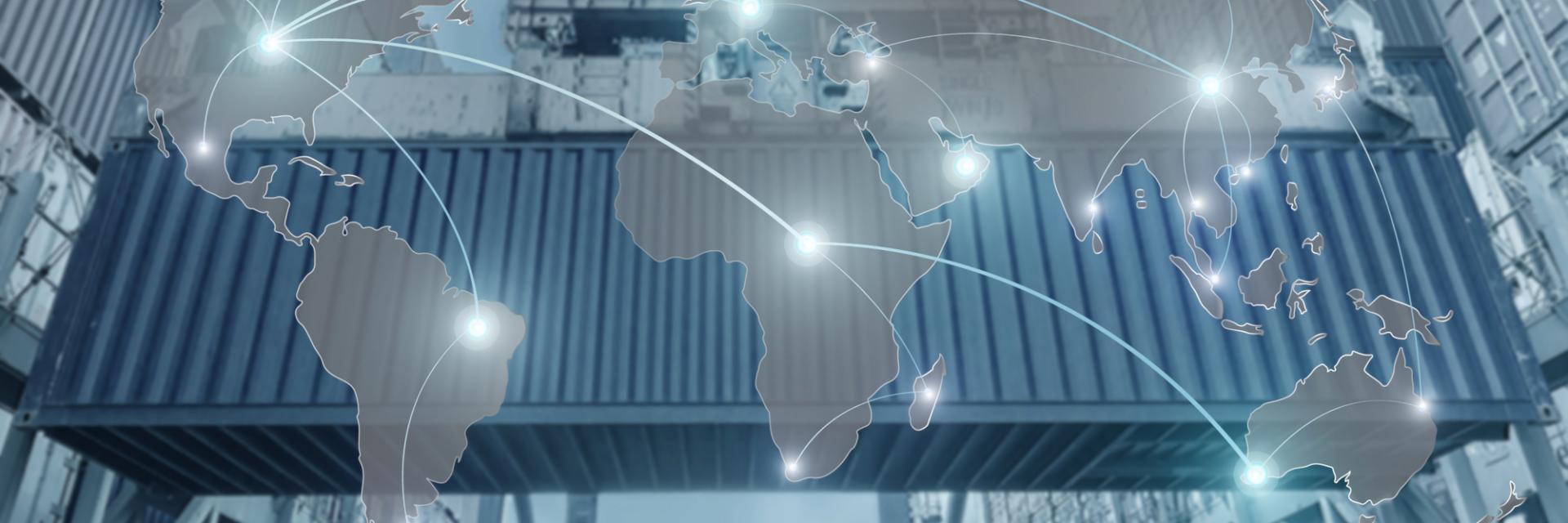Yaoundé, Cameroon, 7 April 2022 (ECA) - Transport in Africa takes much longer and is more expensive than other parts of the world. Improved trade logistics and infrastructure will unlock Africa’s trade potential, says transport and logistics experts.
Factors such as landlockedness, requiring modal changes and several transit countries add to the assessment of time and costs for different potential target markets
The experts from across Africa, Europe, and the USA, in the fields of transportation, infrastructure, logistics, trade, and economic development, met virtually to validate the logistics hypotheses for member countries of the Economic Community of Central African States (ECCAS) in the Decision Support Model (DSM), a model which identifies new export opportunities on 30 March.
The workshop focus was on Modelling export opportunities for Central Africa: validating of logistics-related hypotheses in the DSM model.
Discussions focused on infrastructure and logistical routes in Central Africa, data initiatives, as well as the need for new strategic thinking in formulating infrastructure investment plans for the sub region.
The session began with a review of the DSM model development and logistical hypotheses validation for Cameroon, the pilot country for the Central African project. Following, logistical hypotheses were presented for each ECCAS member country, with a detailed map outlining potential logistics routes. For the validation process, experts identified the actual state of maritime and on-land logistical routes as well as discussed future projects with the possibility to impact international trade routes for all ECCAS member countries.
Cameroon presented its completed assumption model about formal trade to move a container load. 10 other countries that need confirmation of assumptions include Equatorial Guinea, Sao Tome & Principe, Gabon, Chad, CAR, Congo, DRC, Angola, Burundi, and Rwanda. Their assumptions will be revised and the results will be shared in the near future when modelling is complete.
Cameroon Project was on “Providing ‘realistic’ export opportunity analysis as input to Cameroon in reviewing the Plan Directeur d’Industralisation” (PDI, 2015) in the context of the AfCFTA to become the “factory of the new industrial Africa”.
Over the course of the validation, the dynamism of the logistical routes was highlighted, as transportation providers switch routes due to evolving security situations as well as new logistical routes becoming available. Logistical routes were distinguished as those permitting containers with the ability of supporting international trade and those supporting national trade. There was a recognized dependence of current and planned on-land routes on roads, and the need for investments in railway and river transportation networks was acknowledged.
According to the experts the logistics hypotheses validation was a fundamental step in the development of a DSM model for the Central African Region, which will identify new opportunities at the HS-6 level across markets. The DSM model is being tailored to ECCAS member national strategies for the African Continental Free Trade Area (AfCFTA) as well as National Industrial Plans (Plan Directeur d’Industrialisation - PDI). With a focus on deepening regional integration, trade opportunities will focus on regional possibilities.
For policy makers, key observations were made that include focused industralisation and export promotion will assist Cameroon to significantly grow exports and the domestic economy (GDP), but distance and market access matters; demand and specifically import demand patterns in target markets matter.
Media Contact:
Lot Tcheeko, Knowledge Management Officer
United Nations Economic Commission for Africa
637, rue 3.069, Quartier du Lac, Yaounde, Cameroon
Tel: +237 222504321 E-mail: tcheeko@un.or

